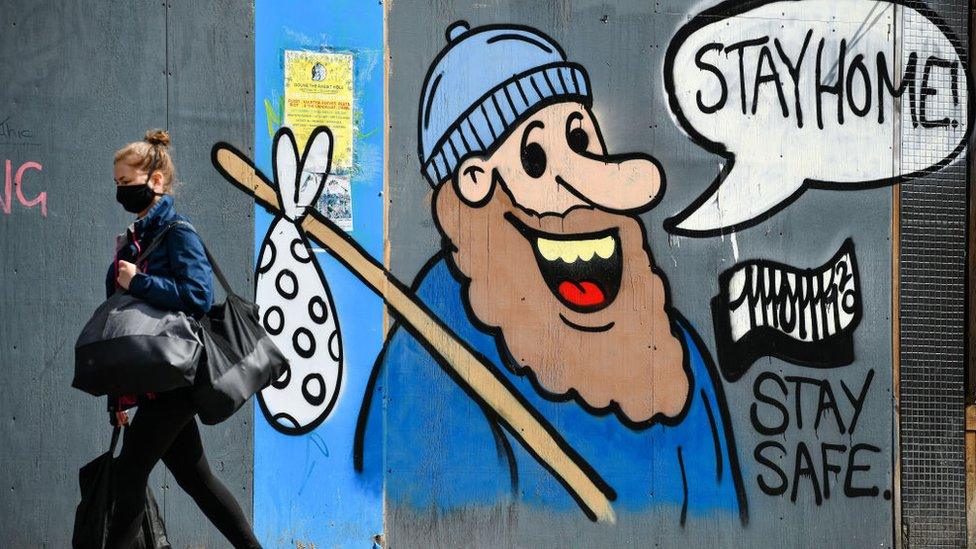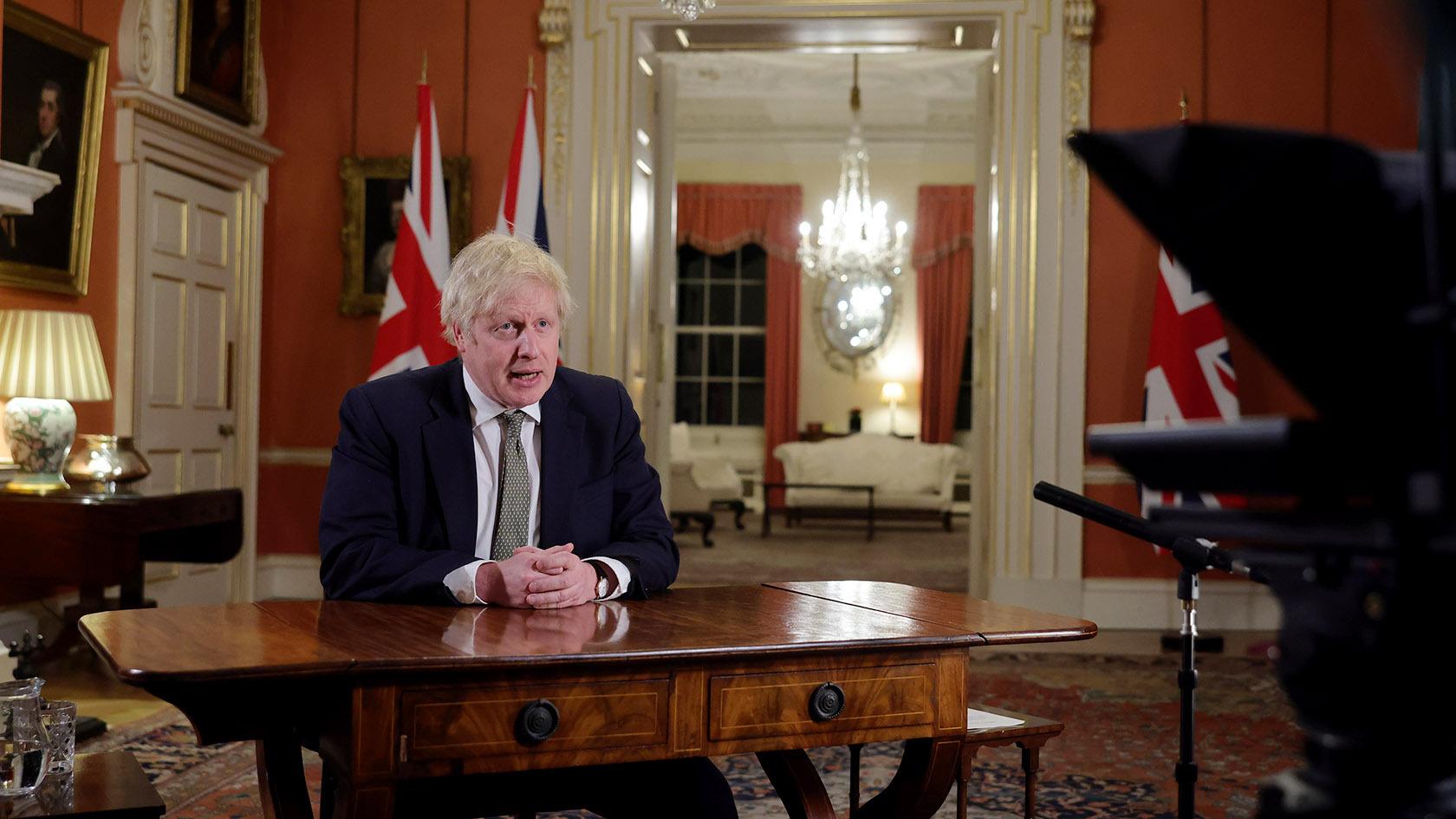Businesses urge fresh financial help to survive lockdown
- Published

Business leaders reacted with dismay to the new lockdown, saying more state aid was vital to avoid firms collapsing.
Unions said without government help more mass job cuts were inevitable, while hospitality firms said their fight for survival was now harder.
The embattled pub and beer sector said its "road to recovery just got longer".
The director general of the CBI business group, Tony Danker, said "the comprehensive restrictions required a new comprehensive response".
"We've seen lockdowns before, we know what impact they have. It was always about building a recovery and we need to put the final pieces in place," Mr Danker told the BBC's Today programme.
He warned that firms which did not receive further financial support, such as VAT payment deferrals, could "act precipitously" and cut jobs prematurely.
Prime Minister Boris Johnson announced the new lockdown in an address to the nation on Monday evening. He said the move was in response to a new coronavirus variant that is spreading throughout the UK, raising the risk of overwhelming the National Health Service.
Many business leaders said companies would understand why the prime minister felt compelled to act on the growing threat to public health.
But CBI's call for more help was echoed by British Chambers of Commerce director general Adam Marshall who said companies would be "baffled and disappointed by the fact that he [Mr Johnson] did not announce additional support for affected businesses alongside these new restrictions".
Help 'critical'
He said companies have been plunged into another period of hardship and difficulty just as the vaccine rollout "provides light at the end of the tunnel".
Billions of pounds has been spent helping good firms survive and they should not be allowed to fail now, Mr Marshall said.
The chief executive of manufacturing group Make UK, Stephen Phipson, also called for additional aid, saying: "It is now critical government revisits the business support packages."


This was the worst possible way to end the first full working day of 2021 but it was not a surprise to most business groups. The CBI, British Chambers of Commerce, the British Retail Consortium and the TUC acknowledged that a response to soaring cases was appropriate but they were also unanimous that business support measures needed to be ramped up.
Some businesses forced to close in the last lockdown were spared this time around. Garden centres and builders were allowed to remain open. But while restaurants can continue delivery and pick up, takeaway alcohol sales will be banned - a blow to many small breweries and village pubs who have used this as a lifeline.
The other main plea from business was to turbo-charge the vaccine roll out and enhanced testing. They, like the government, recognise this may ultimately be the only way to save their businesses.

TUC general secretary Frances O'Grady said the government's financial support package was not good enough to cope with the renewed restrictions.
"Without more support, jobs will be lost and businesses will close," she said. "Ministers must act quickly by providing targeted help for hard-hit industries, boosting sick pay to a real living wage so that people can afford to self-isolate and increasing Universal Credit."
The hospitality industry, among the hardest-hit sectors from the pandemic, said that after dismal or no trade this Christmas, it would be the final nail in the coffin for many firms.
"The road to recovery for the pub sector just got longer," said Emma McClarkin, chief executive of the British Beer & Pub Association.
"Given the circumstances, a wave of business failures is imminent unless a greater package of financial support from the government is given to secure pubs and the brewers that supply them.
"That means grants in line with those in the first lockdown and support beyond April when the business rates holiday, lower VAT rates and furlough scheme all end," she said.
The Institute of Directors added to calls for more financial help from the government, saying it was "crucial to smooth the cliff-edge in support that's fast approaching in the spring".
Roger Barker, director of policy at the Institute of Directors, said: "The Treasury must now bolster support for the worst affected sectors. In particular, it should seek to reinforce the discretionary grant scheme allocated through local authorities, which has helped to reach those who have fallen through the gaps."
- Published5 January 2021

- Published5 July 2023
